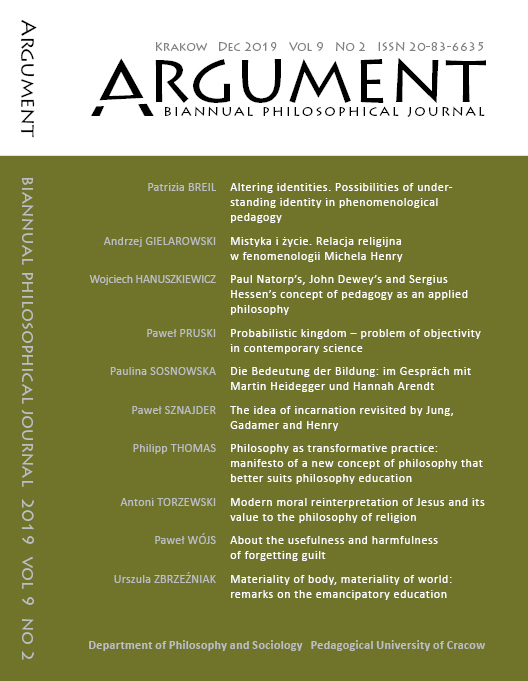Mistyka i życie Relacja religijna w fenomenologii Michela Henry’ego
DOI:
https://doi.org/10.24917/20841043.9.2.8Keywords:
God, phenomenology of life, philosophy of life, Master Eckhart, Artur Schopenhauer, religionAbstract
Mysticism and life. Religious relationship in Michel Henry’s phenomenology: This article discusses the concept of mysticism in the phenomenology of Michel Henry, which involves the relationship of life and the living, as set against two opposing views on the connection of life to the living: Arthur Schopenhauer’s naturalistic philosophy of life and the religious doctrine of Master Eckhart. In the first approach, life is identical with the will to live, a natural force inherent to everything that is alive. In the other one, life is identified with the Christian God (infinite or absolute life), encompassing all individual livings and constituting the foundation for all creation existing out of him. Hermeneutic analyses carried out in the article consider those texts by Michel Henry which comment on the works of Master Eckhart and Schopenhauer and provide for his own interpretations of them. They aim to show that Henry’s thought involves the religious understanding of mysticism as pertaining to the connection of life and the living identified with the relationship of God (absolute life) and humans (finite life). Moreover, the mysticism of life should be distinguished from Schopenhauer’s naturalistic metaphysics of life, while its main inspiration are the Christian teachings of Master Eckhart, therefore the former may be considered as one of the interpretations of the latter. Irrespective of its Christian background, Henry’s thought can be also of interest to non-Christians, as it presents a way of accessing (absolute) life through the experience of a living body (French: chair) underlying self-affectivity, largely forgotten in modern times but which can be revived by communing with art, because aesthetic experience is one of the forms of feeling one’s own being. In Henry’s thought, aesthetics, ethics and religion are closely interrelated, providing an effective remedy for the contemporary cultural crisis.


